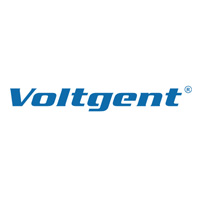## Understanding Emergency Generator Services: How They Work
Emergency generator services play a crucial role in ensuring uninterrupted power supply during outages, thus safeguarding operations in various settings like manufacturing plants, hospitals, and data centers. These services encompass the maintenance, installation, and troubleshooting of generator systems designed to kick in when the mains power fails.
At the heart of an emergency generator system lies the generator itself, which consists of several key components: the engine, alternator, fuel system, and control panel. The engine converts fuel into mechanical energy, typically powered by diesel, propane, or natural gas. The alternator, coupled with the engine, transforms this mechanical energy into electrical energy. Fuel systems ensure a constant supply of fuel to the engine, while the control panel manages the generator’s operation, initiating it automatically when a power outage is detected.
Modern emergency generators are increasingly equipped with advanced technologies to enhance their efficiency. For example, Automatic Transfer Switches (ATS) are integrated into generator systems to monitor the mains power. When an outage is detected, the ATS seamlessly switches the load to the generator, minimizing downtime. Additionally, some systems feature Remote Monitoring Systems, allowing technicians to monitor generator performance, fuel levels, and maintenance needs from a distance, often through a smartphone app or dedicated software.
The application of these technologies is significantly beneficial in modern manufacturing processes. For instance, in a large textile manufacturing facility, the use of an emergency generator can prevent costly production halts caused by power outages. If the main power supply is interrupted during a critical phase of production, the automatic generator engages, ensuring that machinery continues to operate without interruption. This seamless transition not only safeguards the flow of operations but also helps in maintaining product quality and delivery schedules.
Moreover, in healthcare settings, where power is vital for life-support systems, an emergency generator becomes invaluable. For example, a hospital’s generator must be capable of supporting essential medical equipment during outages. With advanced technologies, hospitals can ensure that these generators are always ready and able to perform under pressure, protecting patient health and safety.
In conclusion, emergency generator services are essential for ensuring continuous operations across various industries. The integration of advanced technologies significantly improves the reliability and efficiency of these systems, making them indispensable in today’s manufacturing landscape. If you are looking for reliable suppliers or need assistance in setting up your emergency generator services, please contact us.
